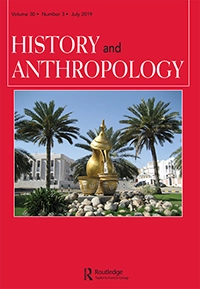by Laura Rademaker
In the 1950s, anthropologist Jane Goodale had bright hopes for her informant Happy Cook, an Aboriginal girl from the Tiwi Islands in North Australia, who she considered constrained by paternalistic government policies. Goodale was devastated witnessing Cook’s suffering over following decades. Looking at Goodale’s feelings of friendship turned to grief over the second half of the twentieth century, this article reveals a crisis of self-understanding among researchers in late twentieth-century Australia. This grief, originally private for Goodale, became increasingly public and performed in white anthropologists’ discourse as they wrote on Aboriginal communities’ experience. Goodale later concluded that this supposedly new era was, in many ways, similar to what had come before, a conclusion that brought on a grief shared by many of her generation. Her experience reveals how ethnographers’ subjective dilemmas and their performances of anti-racism through friendship shifted as they entered what they hoped to be a post-colonial context.


